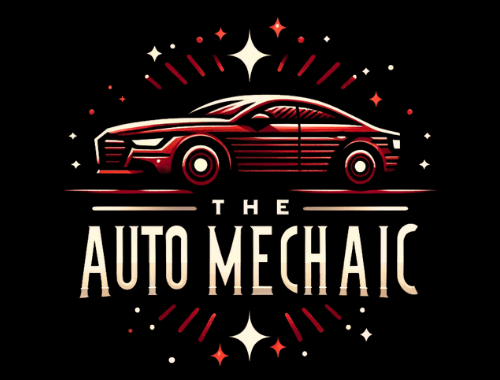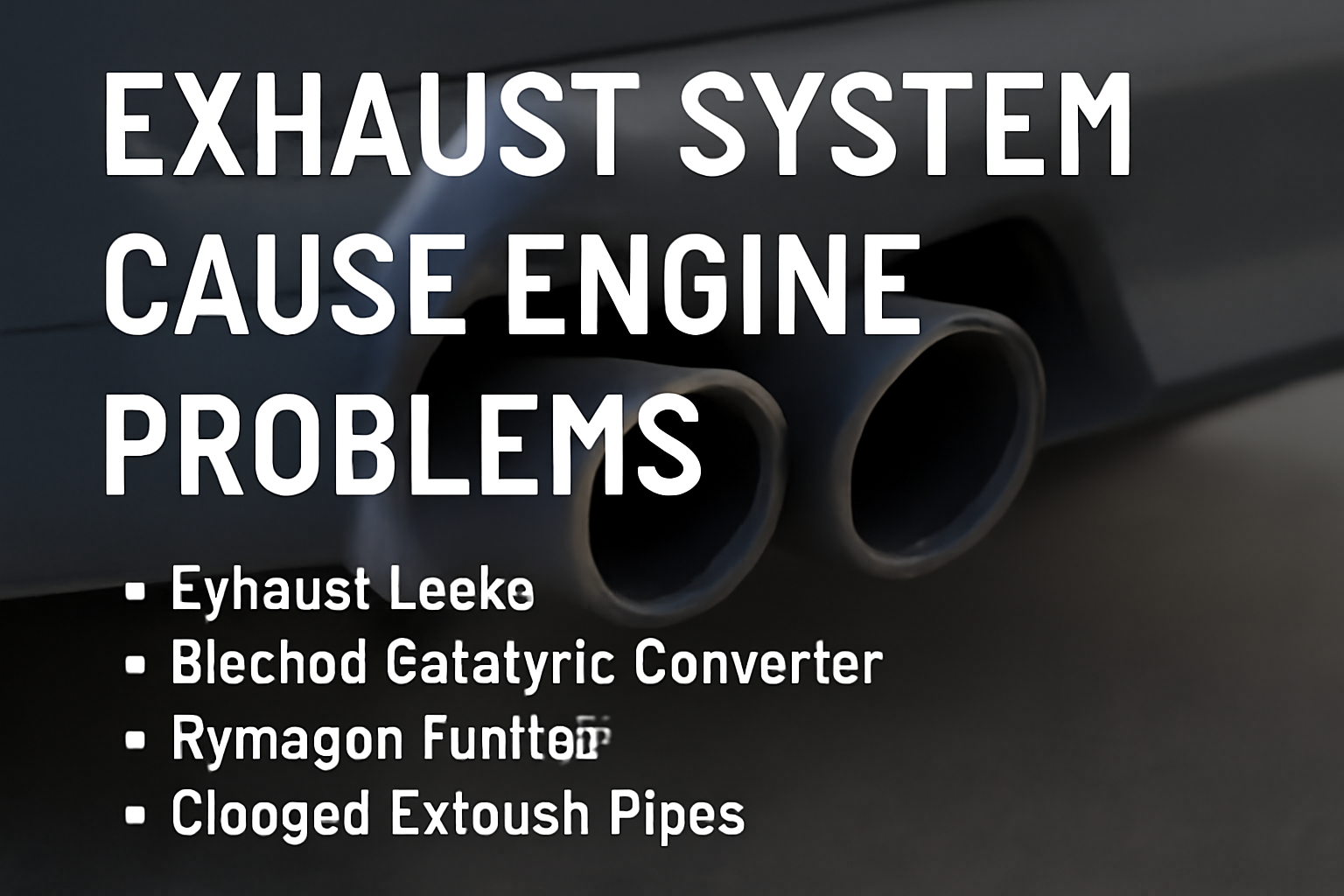Your car’s exhaust system is not only responsible for controlling emissions but also serves a very important function of keeping your engine running at its optimal level. A proper exhaust system keeps your engine running well by efficiently disposing of harmful gases.
When this system is not working, it brings about many problems that undermine the health of your engine. If you find yourself asking, “Can a bad exhaust system cause to engine issues?” The answer is affirmative.
This blog post will examine the potential problems brought about by a failing exhaust system and how early repair is important to maintain your engine’s performance and lifespan.
2. What is an Exhaust System and How Does It Work
In order to understand better why a faulty exhaust system can affect your engine, it is first necessary to understand how the exhaust system functions and how it contributes to the overall efficiency of your car. The exhaust system is tasked with routing toxic gases away from the engine and safely venting them out into the air. It is comprised of several components, such as the exhaust manifold, catalytic converter, muffler, and exhaust pipes.
This system contributes to the mitigation of engine noise, emissions control, and engine temperature management through effective removal of exhaust gas. A malfunctioning exhaust system will disrupt this balance and lead to many engine issues.
3. How a Defective Exhaust System Affects Engine Performance
A malfunctioning exhaust system will result in a series of problems, from power and fuel efficiency loss to excess emissions, all that adversely contribute to engine performance. When components like the muffler or catalytic converter fail, the engine may have difficulty expelling exhaust gases, leading to pressure buildup.
This excess pressure forces the engine to work harder to operate, reducing its efficiency and power. A faulty exhaust system may also disrupt the air-fuel mixture, leading to wasteful combustion. All these can greatly impair the engine’s performance and longevity.
4. Typical Signs of a Failing Exhaust System
If your exhaust system fails, there are several typical signs that can indicate that something is wrong, most of which have an effect on your engine’s functioning. Typical signs are abnormal noises, such as a rattling or clanking noise coming from the exhaust pipe, which can indicate a hole or crack. A reduction in fuel efficiency is another symptom, as the clogged exhaust system forces the engine to work harder.
If you discover that the car is overheating, additional smoke being emitted from the exhaust, or if there’s a pungent sulfur smell, these are all options that the exhaust system has malfunctioned and is producing engine issues.
5. Exhaust System Issues That Can Lead to Engine Complications
Beginning Sentence: Not all exhaust system issues are the same and have the same impact on your engine, but the majority of problems like exhaust leaks, clogged catalytic converters, or a damaged muffler can lead to serious engine complications.
Exhaust Leaks
- Can make your engine lose power due to improper calculated exhaust flow.
- Leads to unburned gases entering the engine and changing the air-fuel mixture.
- Can lead to engine misfires and low acceleration.
Clogged Catalytic Converter
- Blocks the exhaust flow, creating back pressure and causing overheating of the engine.
- Can lead to low fuel efficiency and poor engine performance.
- Incriminates emissions, potentially making the emissions test fail and harm the environment.
Faulty Muffler
- Adds noise to the engine, which could be a sign of inefficient exhaust flow.
- Can lower the performance of the engine by preventing the expulsion of exhaust gases.
- Typically causes vibrating or rattling noises, which can cause further damage inside the system.
Blocked Exhaust Pipes
- Inhibits proper expulsion of exhaust gases, leading to pressure accumulation.
- Reduces power from the engine and fuel efficiency.
- May eventually lead to engine overheating or even engine failure if left unrepaired.
6. How a Bad Exhaust System Causes Engine Overheating
One of the most common issues of having a broken exhaust system is overheating. With the engine working harder to attempt to compensate for the loss within the exhaust system, engine stress and potential damage result.
When an exhaust system clogs or does not expel gases such as it ought to, the engine can experience a rise in inner temperatures. This added load may cause the engine to overheat and in the process, may result in failure of essential parts like the head gasket, radiator, or even the engine. Under severe conditions, the engine may seize with resulting expensive repairs or replacement.
7. The Exhaust System and Fuel Economy Relationship
One of the more noticeable impacts of a faulty exhaust system is reduced fuel efficiency because the engine must work harder and burn additional fuel to compensate for exhaust issues. A faulty exhaust system, such as a clogged catalytic converter or blown muffler, will restrict the flow of exhaust gas. This extra resistance forces the engine to produce more effort to expel the exhaust, consuming additional fuel in the process.
As a result, you will experience your miles per gallon (MPG) plummeting quite dramatically, and this can amount to considerable extra fuel costs over the long term.
8. What Happens if You Do Nothing at All with Exhaust System Problems?
It may be a quick “fix” to do nothing with exhaust system problems, but it will ultimately result in more severe engine damage, greater repair costs, and a less pleasant driving experience. A small exhaust leak or muffler issue might not appear to be that serious right now.
However, it may eventually lead to other parts failing. For example, failure to repair an exhaust problem can lead to overheating, incorrect fuel consumption, or engine misfire. Delaying repairs will also increase the chances of failure in the emissions system, which will make your vehicle illegal to operate in some locations, leading to huge fines and penalties.
9. Tips on How to Keep Your Exhaust System in Good Condition to Prevent Engine Damage
Regular maintenance and immediate repairs to your exhaust system will be able to avoid serious engine problems and have your car running well in the long term. Stopping exhaust leaks, rust, or any damage by doing regular checks can allow you to identify issues early on before they become uncontrollable. Replacing the catalytic converter, muffler, or any other parts when needed can keep the exhaust system in proper working condition.
Also, staying on top of engine upkeep, such as maintaining the correct engine timing and fuel ratio, will have your exhaust system running its best and prevent unnecessary strain on the engine.
FAQ’s
1. Can a bad exhaust system damage the engine?
Yes, a bad exhaust system can damage your engine by creating additional heat and pressure build-up, resulting in engine stress and decreased efficiency.
2. What are the symptoms of a faulty exhaust system?
Typical symptoms include unusual noises, compromised acceleration, poor fuel efficiency, and engine misfire.
3. How does an exhaust leak affect engine performance?
An exhaust leak reduces engine power and performance by letting unburned gases escape, potentially causing the engine to misfire also.
4. Can a clogged catalytic converter be a cause of engine problems?
Yes, a leaking or faulty catalytic converter can restrict exhaust flow, leading to engine overheating, poor acceleration, and eventually engine damage.
5. How does a deficient muffler affect engine performance?
A deficient muffler can disrupt exhaust flow, make noise, and decrease engine efficiency.
6. How do I know if my exhaust system is giving me engine problems?
If you notice symptoms like unusual noises from the engine, lackluster acceleration, or a decrease in fuel efficiency, then you may want to check your exhaust system.
Conclusion
A faulty exhaust system can indeed lead to critical engine problems, but by maintaining good care and fixing any issues at the first sign of malfunction, you can avoid costly repairs and have your engine in tip-top condition.
Whether it’s a small exhaust leak or an issue of a more troublesome kind like a clogged catalytic converter, fixing exhaust system problems early on will prevent engine stress, help your fuel mileage, and help your car last longer. Maintenance is the key to keeping your exhaust system and engine in like-new condition for years to come.

Bruce William is a professional content writer and vehicle engineer with extensive car maintenance and repair knowledge. His expertise spans all vehicle parts, offering practical solutions for various automotive issues. Bruce provides valuable insights through his website articles to help readers maintain their cars for optimal performance and longevity.

